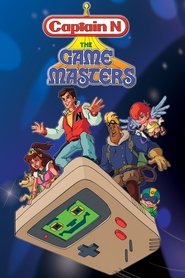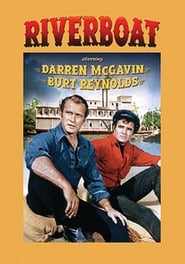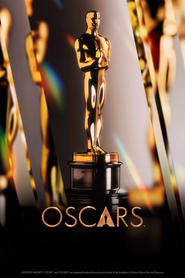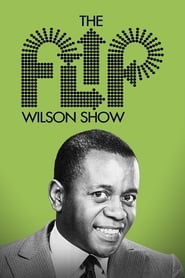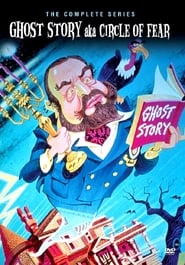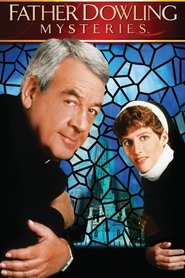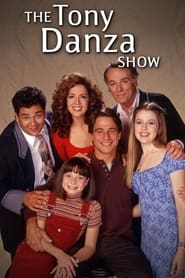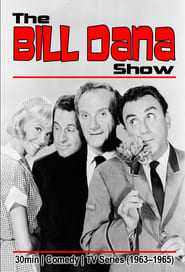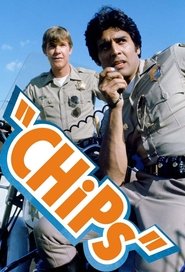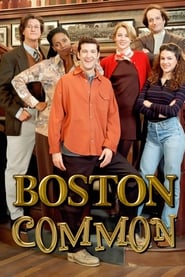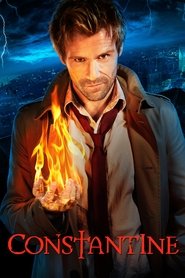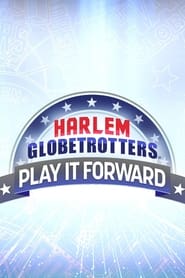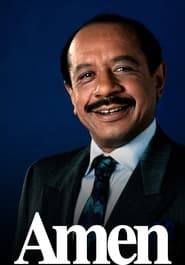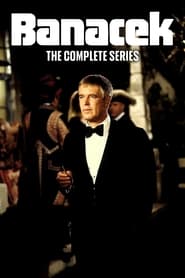Nbc TV Series - Page 18
-
Captain N: The Game Master
1989
star 6.9A teenager from Earth, is brought to another universe known as Videoland to defeat the evil villainess, Mother Brain, as foretold in an Ancient Prophecy. -
Riverboat
1959
star 6.2Riverboat is a 44-episode western television series starring Darren McGavin and Burt Reynolds broadcast on the NBC television network from September 13, 1959 until January 2, 1961. It was produced by Revue Studios. -
The Oscars
1953
star 7An annual American awards ceremony honoring cinematic achievements in the film industry. The various category winners are awarded a copy of a statuette, officially the Academy Award of Merit, that is better known by its nickname Oscar. -
The Flip Wilson Show
1970
star 4.8The Flip Wilson Show is an hour long variety show that aired in the U.S. on NBC from September 17, 1970 to June 27, 1974. The show starred American comedian Flip Wilson; the program was one of the first American television programs starring a black person in the title role to become highly successful with a white audience. Specifically, it was the first successful network variety series starring an African American. During its first two seasons, its Nielsen ratings made it the nation's second most watched show. The show consisted of many skits over an hour. It also broke new ground in American television by using a 'Theatre-in-the-Round' stage format, with the audience seated on all sides of a circular performance area. Wilson was most famous for creating the role of Geraldine Jones, a sassy, modern woman who had a boyfriend named Killer. Flip also created the role of Reverend Leroy, who was the minister of the Church of What's Happening Now!. New parishioners were wary of coming to the church as it was hinted th -
Ghost Story
1972
star 7.1Ghost Story is an American television anthology series that aired for one season on NBC from 1972 to 1973. Executive-produced by William Castle, it initially featured supernatural entities such as ghosts, vampires, and witches. By mid-season, low ratings led to a shift -- for the most part -- away from paranormal themes and a title change to Circle of Fear. -
Father Dowling Mysteries
1989
star 7.3Father Dowling Mysteries is an American television mystery series that aired from January 20, 1989 to May 2, 1991. Prior to the series, a TV movie aired on November 30, 1987. For its first season, the show was on NBC; it moved to ABC for its last two seasons. It is based on the adventures of the title character created by Ralph McInerny, in a series of mystery novels. The series was produced by The Fred Siverman Company and Dean Hargrove Productions in association with Viacom Productions. -
Working
1997
star 4.7Working is an American situation comedy that aired on NBC from 1997 to 1999. The series was created and executive produced by Michael Davidoff and Bill Rosenthal. -
The Tony Danza Show
1997
star 4The Tony Danza Show is an American sitcom starring Tony Danza, Majandra Delfino, Dean Stockwell, Ashley Malinger, María Canals, and Shaun Weiss that aired on NBC in 1997. The series aired 5 episodes before being cancelled, leaving 7 episodes unaired. -
Screen Actors Guild Awards
1995
star 6.2One of awards season's premier events, the SAG Awards annually celebrates the outstanding motion picture and television performances of the year, as voted on by SAG-AFTRA's robust and diverse membership of 122,000+ performers. -
The Bill Dana Show
1963
star 6The Bill Dana Show is a United States comedy series .The plot follows the daily lifestyle of Latin American, Jose Jimenez, as a bellhop in a New York hotel. -
CHiPs
1977
star 6.8Lighthearted look at the adventures of two Highway Patrol officers in Los Angeles. The main characters are Jon Baker and Frank Poncherello, two motorcycle officers always on the street to save lives. -
The Jimmy Durante Show
1954
The Jimmy Durante Show is a 51-episode half-hour comedy/variety television program presented live on NBC from October 2, 1954 to June 23, 1956. -
Boston Common
1996
star 6.9After moving to Boston from Virginia, to spy on his sister who just started college, Boyd finds himself working for the student union where he raises hell more often than he should. -
Max Liebman Presents
1954
Max Liebman Presents
1954
Max Liebman Presents, is an American television anthology series. A total of 28 episodes aired from 9/12/1954 to 6/9/1956 on the National Broadcasting Company. -
The Chevy Mystery Show
1960
star 6.3The Chevy Mystery Show is an American television anthology series featuring a different mystery each week that aired on NBC in 1960 as a summer replacement. -
Constantine
2014
star 7.8A man struggling with his faith is haunted by the sins of his past but is suddenly thrust into the role of defending humanity from the gathering forces of darkness. -
Harlem Globetrotters: Play It Forward
2022
The world-famous Harlem Globetrotters showcase their talents on and off the court as players share their personal inspirations and interests. -
Amen
1986
star 6.6Amen is an American television sitcom produced by Carson Productions that ran from September 27, 1986 to May 11, 1991 on NBC. Set in Sherman Hemsley's real-life hometown of Philadelphia, Amen stars Hemsley as the deacon of a church and was part of a wave of successful sitcoms on NBC in the 1980s which featured entirely or almost-entirely black casts. Others included The Cosby Show, A Different World, and 227. -
Banacek
1972
star 8.6Banacek is an American detective TV series starring George Peppard that aired on the NBC network from 1972 to 1974. The series was part of the rotating NBC Wednesday Mystery Movie anthology. It alternated in its time slot with several other shows but was the only one to last beyond its first season. -
Petrocelli
1974
star 7Petrocelli is an American legal drama which ran for two seasons on NBC from September 11, 1974 to March 31, 1976. Tony Petrocelli is an Italian-American Harvard-educated lawyer who gave up the big money and frenetic pace of major-metropolitan life to practice in a sleepy city in the American Southwest. He and wife Maggie live in a trailer in the country while waiting for their new house to be built, and travel around in a beat-up old pickup truck. For a quiet rural area, Petrocelli seems to have no trouble running into his share of murderers to defend.
